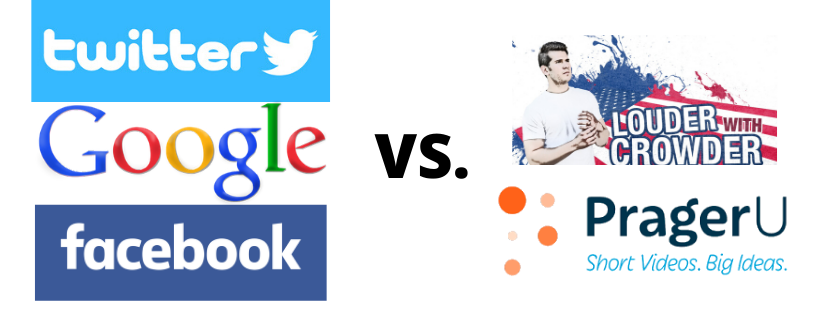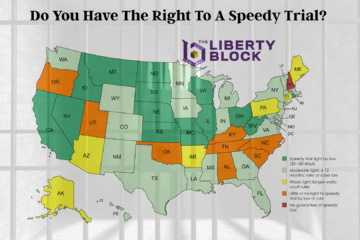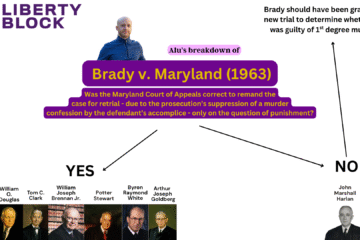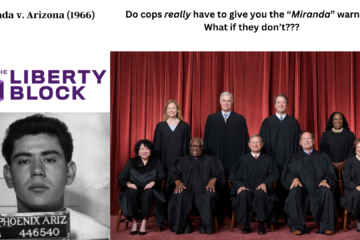For the second time in the past few weeks, I must admit that I was very wrong. Yeah, 2020 has been a terrible year for people as arrogant as me. Until a few months ago, I had sorely misunderstood the true question at the heart of a huge political issue. Many people still do not understand the proper way to frame this discussion. Even the most elite politicians and analysts purposely or mistakenly misrepresent the legal issue at hand. It is critically important that we properly understand the legal battle of our time: Online censorship.
Currently, 68% of adults in the US and half of the people on Earth use social media. As baby boomers are replaced by Gen Z, that figure could increase to 85% of humans. Even before the COVID lockdowns, the overwhelming majority of discourse has occurred via social media sites like Facebook and Twitter. Americans consume their news, stay in touch with friends, and meet new people online every day. Whoever controls the social media industry essentially controls what most of the world thinks. That is true power.
I remember making a Facebook post around a year ago that was quite critical of PragerU, an educational conservative YouTube channel which I mostly loved. PragerU had been complaining that the government must intervene and stop YouTube (and potentially other sites) from censoring, demonetizing, restricting, or banning their right-of-center videos. A humongous conserative libertarian commentator, Steven Crowder has also been restricted by YouTube for seemingly arbitrary reasons. Facebook and Twitter also regularly restrict and censor conservative content based on ideological differences.

I thought that this issue was cut and dry; freedom of speech means that the government can’t abridge our speech or expression. Free market policies meant that any private company is free to do anything they want, including censoring anyone they don’t like. Indeed, I took the side of the vicious leftists over the pro-liberty outlets, because that was what my principles and knowledge led me to believe.
I was humbled when someone explained to me that the crux of the legal battle brought by PragerU and many other conservatives was about some very important federal classifications:
‘Platform’ and ‘publisher’
Simply put, an entity is recognized by the US government as a ‘platform’ when they do nothing other than provide a physical or virtual platform which people could use to express themselves. If you own a huge park, you may not be liable for the speech said by kids while they play football in one of your fields. If you own an online platform, you are not legally liable for the speech or even the crimes committed by your users. Comments sections and telephone companies are generally federally classified as platforms. A court ruled in 1991 that online forums shall be stripped of their protections and treated as publishers for having so much as an anti-vulgarity policy.
An entity is recognized as a ‘publisher’ by the government when the owners of the entity or their employees control, direct, or manipulate the content expressed by the entity. NY Times is a publisher, because they do control what is printed. The Liberty Block is a publisher, because we do control what we publish.
Of course, even a ‘platform’ is allowed to remove content that is truly criminal in nature. Websites can and should remove videos depicting murder, rape, or sexual exploitation of children. There is very little debate there. However, once Facebook begins to censor speech that they do not like – or once they promote speech they do like – the company is acting as a ‘publisher’ and not a ‘platform’. This means that they should lose the platform protections that they enjoy, and they should be held liable for every single post, comment, and picture on Facebook. Of course, huge social media sites cannot afford to lose their platform protections for two reasons:
- They simply cannot possibly comb through billions of posts every day due to lack of manpower and money.
- They want to remain innocent and do not want to be held responsible for all of the content on their sites posted by the billions of users.
However, sites like Facebook, YouTube, and Twitter are pushing the limits more each day. Facebook was caught promoting pro-Democratic causes to the top of the ‘trending’ section and squashing conservative stories. Shortly afterwards, they removed the ‘trending’ section from Facebook. However, they still find themselves in countless battles with conservatives who claim that they are treating them unfairly while elevating content by left-wing users and pages. A few years ago, Facebook began to ‘fact-check’ a number of news stories, including global warming. They use sites such as ‘Snopes’, FactCheck.org, and other left-wing websites that claim to be independent fact checkers. Anyone who doubts that man-made global warming is as scientifically proven as gravity could be censored, the post may be blocked or removed, and they could be given their first strike towards a ban from the site. YouTube and Twitter seem to have similar fact-checking protocols. What happens when fact-checkers say that guns must be banned, that conservatives are sociopaths, and that the free market is evil?
All of this is fine, as long as these mega-sites are no longer given the same protections as platforms who don’t pick winners and losers.
“As publishers, the companies can restrict speech on their platforms as they see fit. Their editorial decisions (not those of their customers) are protected by the First Amendment. However, they are open to lawsuits over the content.
As a platform, or provider of a computer service, a company cannot be liable for content users post on their sites. This is from Section 230 of the Communications Decency Act.”, writes Rachel Alexander of TownHall.com
“This was also a time when many people were worried about the Internet, chiefly because of porn and its accessibility to children. That led Congress to enact the Communications Decency Act of 1996, which tried to limit online porn; but the Court struck that down in Reno v. ACLU (1997). Part of the Act, though, remained: 47 U.S.C. § 230, which basically immunized all Internet service and content providers platforms from liability for their users’ speech—whether or not they blocked or removed certain kinds of speech.”, writes Eugene Volokh of Reason.com
As Volokh mentions, federal law does say that:
“No provider or user [a platform] of an interactive computer service shall be held liable on account of any action voluntarily taken in good faith to restrict access to or availability of material that the provider or user considers to be obscene, lewd, lascivious, filthy, excessively violent, harassing, or otherwise objectionable.”
The problem: Technically, the federal law is extremely broad, as it allows platforms to censor speech that they deem to be ‘objectionable’. This is a much lower standard that ‘a clear crime or violation of a person’s rights’, of course.
Even if the federal law were changed to strip platforms of their protected status as soon as they censor free speech, we would still remain at a stalemate of sorts. Politicians and regulators in Washington understand that Facebook, Twitter, and YouTube are acting like publishers and should not be granted special platform privileges. However, they refuse to revoke their protections. I believe that there are two large reasons for this:
- Most of Washington DC agrees with the progressive, socialsit, anti-conservative ideology of these giant companies and
- Those who do wish they could revoke the companies’ platform protections are afraid that if they cross the three biggest social media companies on Earth, they will be destroyed, and I don’t blame them; I’d be afraid, too.
President Trump to the rescue?
On May 28th, President Trump signed an executive order directly addressing this issue. Trump, who has been the victim of anti-conservative censorship on social media himself, instructed federal agencies to enforce the law and reconsider whether social media sites that alter content should be legally classified as platforms:
“When an interactive computer service provider removes or restricts access to content and its actions do not meet the criteria of subparagraph (c)(2)(A), it is engaged in editorial conduct. It is the policy of the United States that such a provider should properly lose the limited liability shield of subparagraph “
My initial reaction to the executive order is that it is wonderful – yet meaningless. Until someone in Washington DC has the guts to stand up to the tech giants referred to by Breitbart as the ‘masters of the universe’, nothing will change. And I don’t see many Washington elies with the guts to make this happen.
So, what’s the solution?
Not only am I seeking a solution to this difficult situation, but I need to find one that does not involve increasing government powers in the process. Here are my preliminary thoughts on the matter: Before we can expect any politician to stand up to the giant media sites, we must weaken them. Not with government force. That always seems to backfire. As individuals, we need to support their competitors more and support the giants less. If necessary, we should create our own social networks and/or video hosting site. Within the past few years, MeWe, Minds, Parler, LBRY, and countless other competitors to the old sites have been created. Each of them seems to offer their own advantages, including privacy, free speech, and decentralized open-source code (whatever the hell that means). What the government can do for now is stay out of our way. They can eliminate regulations and taxes that act as barriers to startups like the aforementioned sites. Maybe the free market can resolve this complicated government-caused issue, after all.
Further reading:
The First Rule of Social-Media Censorship Is That There Are No Rules


